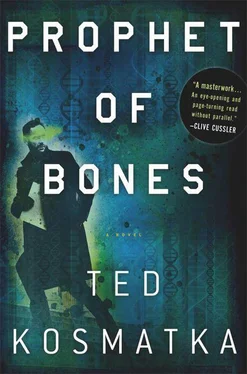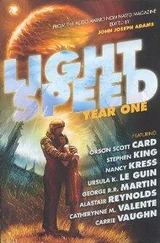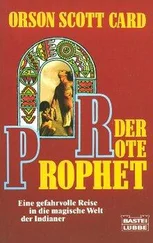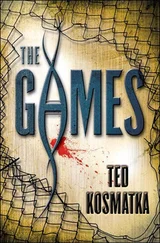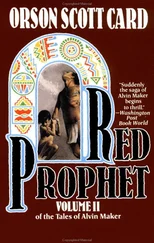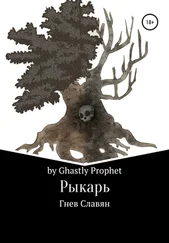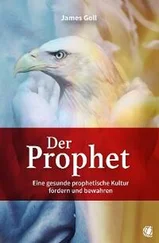From above came a sound, the rattle of the tarp, pulling Paul from his reverie. Then a voice called down, “Paul?”
“Yeah,” Paul answered.
“You’re up early today.” It was Gavin. “Didn’t expect to see you down there.”
“I was checking on one last thing.”
“Everything okay?”
“Yeah. I’m good.”
“You need anything?”
“No, I’m done here.” Paul stood and gripped the ladder. He clicked off his light and climbed back up to the land of the living.
* * *
Days passed.
The dig continued. The rain continued. Jungle heat and jungle sounds. The hack of machetes on firewood. The chatter of men.
Flores.
In the distance, the Wae Racang River hissed white static against the rocks, an ever-present roar that played background music to the clamor of the busy camp.
By the fourth day, Paul had grown tired of watching everyone work. He had his samples carefully sealed in their protective lozenges. Until more bones were discovered, he technically had nothing to do, so he gave himself a job. He joined the local labor force and helped carry buckets of soil between the sieves.
At first the Manggarai workers eyed him suspiciously, this strange, big American with the Asian face, but as the hours wore on they gradually warmed to him. Cebong Lewe they called him, and later, sitting around the campfire, one of the researchers explained that this meant “bathe long,” referring to Paul’s habit of taking a dip in the river at the end of the workday. He lumbered among them, toting buckets of soil in each hand. He could carry more than they could, but he couldn’t squat, couldn’t kneel in the dirt, hunched for hours over the sieves. The workers rotated in their duties, first carrying buckets, then taking turns working at the fine-mesh grates. After only minutes at the sieves, Paul’s knees were screaming. His calves burned like fire. He was too big, too heavy to fold himself up like that. He traded jobs with one of the bucket carriers, who seemed confused by the offer of trade. Paul realized the Manggarai viewed the bucket carrying as the work and the sieving as a break.
Back in the United States, Paul’s principal form of exercise had been kayaking. He paddled the cold waters of the Chesapeake for three seasons of the year, pulling himself along with the strength of his arms.
Now Paul trudged the buckets back and forth—his body, he discovered, being particularly well suited to the role of pack animal.
The native population of Flores divided itself into a half dozen tribes: the Lio, the Sikka, the Bajawa, the Endenese, the Ngadha, and the Nagekeo. Some of the tribes were related, others not at all. Paul had studied a book on the island’s history on the long flight over. Flores sat in an intertidal zone between converging waves of Asians to the east and the older, endemic Australoid groups to the west. The men he worked with represented a complex mixture of both. Uniformly dark-skinned, many looked almost Filipino or Cambodian, with straight black hair and delicate frames; others were more Austronesian in appearance, with curly hair and strong noses. All chewed betel nuts as they worked, drooling blood-red spit into the dirt. They spoke two or three dialects apiece, and understood more.
For lunch, they ate simple meals of rice and fish, gulped small spotted eggs straight from the shell. They sipped rice wine while they ate—an extended hand, an offered jug. “Safer than the water,” one of them said in perfect English.
Paul drank deep.
* * *
That evening when the dig shut down, Paul helped Gavin pack the jeep for a trek back up to Ruteng. “I’m driving two of our laborers back to town,” Gavin told him. “They work one week on, one off. You want to come with me?”
“Sure,” Paul said.
The trip up the valley was just as perilous as the trip down. If anything, the track had grown muddier.
Gavin rented Paul a hotel room for the night and gave him some money—three ten-thousand-rupiah notes. To Paul’s questioning look, he answered, “About sixty dollars, American.”
Paul showered properly and shaved his four-day stubble. He threw himself onto the bed. After the previous few nights in the camp, sleeping in a bag in a tent, this bed felt like the under-down of baby angels.
In the morning, he woke early and walked the streets, past the already thronging masses, into the bazaar. The sun angled down from a clear blue sky. A cool breeze blew up from the ocean several miles away, thick with the smells of jungle. Large black lizards, skinned and cooked, hung like ghoulish bunches of bananas from vendors’ tent posts.
“Hello mister, hello mister!”
He walked on, ignoring the calls, losing himself in the crowds. Bright fabrics draped the small shops in color. The smells of spices and fresh fruit permeated the air—a multitude of vendors cooking their products in tiny, smoky stands wedged strategically into the flow of foot traffic. Music skirled from radios hung at the backs of shops, marking territory by aural display, outlining each vendor’s sphere of influence.
He saw Chinese noodles and blue sarongs, and coconuts, and fish, and western T-shirts, and cigarette lighters, and shoes that would not fit him. People on bicycles and motorbikes.
He saw a trinket hanging from a post, a beaded necklace with a shark’s tooth dangling from the bottom. He paused for only a millisecond, the slightest hint of hesitation, and a voice came out of the booth: “Hello, mister.”
Paul turned. “How much?”
The shop owner came forward. He was old and gray and bent. His rheumy, bloodshot eyes did a quick appraisal. “With respect, sir,” he said in good English, pointing to a pair of small signs that seemed to give two different prices for the same necklace. One sign read 25,000 RP and the other 15,000. “Very nice necklace. Grandson caught shark with own hands.”
“Which price is it?”
“That depend,” the old man said.
“On what?”
“On if you want haggle. You want haggle, we start this price here,” he said, gesturing to the sign with the higher price. His knuckles were knobby with arthritis.
“I’d rather start there,” Paul said, pointing to the other sign.
The man shook his head. “No, that the no-haggle price. If you want haggle, we start at twenty-five thousand rupiah. But don’t worry, we talk price down.”
“How far down?”
“Almost to here,” he said, pointing to the lower price.
“Almost?”
“Can’t haggle all the way to the no-haggle price. You understand, sir. I must earn something for my time, yes? Now I start. Mister, this is price of necklace.” The old man pointed to the higher price. “Very nice necklace. Grandson caught shark with own hands. I can go no lower. What you offer?”
Paul grinned and shook his head. “I’ll take the no-haggle price.” He opened his wallet and pulled out two ten-thousand-rupiah notes. He knew when he’d met his match. “Keep the change.”
* * *
Paul found Gavin back at the hotel a few hours later.
“You had me worried,” Gavin said. He was sitting at a table near the front steps, sipping coffee. The sun was higher now, but the building’s awning provided shade.
“About what?”
“About where you’d gotten to.”
Paul gestured around. “There’s not a lot of places to wander off. This town isn’t that big.”
“Call it a healthy paranoia. To be honest, bringing you here has created some attention we didn’t want yet. I had several meetings this morning—some of them unexpected. So far, we’ve shuffled under the radar, but now…” Gavin let the sentence die.
“Now what?”
“We’ve flown in an outside tech, and people want to know why.”
Читать дальше
